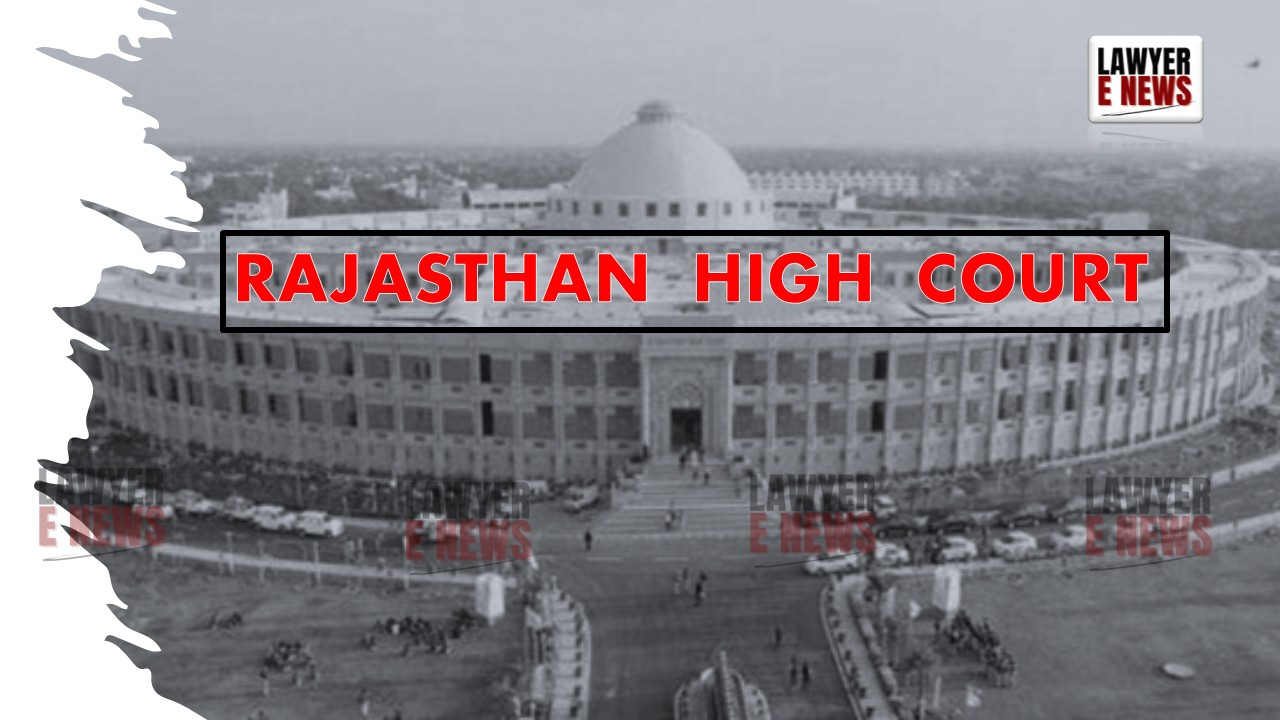-
by Admin
15 February 2026 5:35 AM



Conviction under Sections 7 and 13(1)(d)/13(2) of the Prevention of Corruption Act overturned due to lack of evidence establishing essential elements of the crime.
The Rajasthan High Court has overturned the conviction of Babu Lal, a former bank manager of the Bank of Baroda, in a corruption case where he was accused of demanding and accepting a bribe for the sanction of a loan. The court found that the prosecution failed to prove beyond a reasonable doubt that there was a demand for illegal gratification, a crucial element required for securing a conviction under the Prevention of Corruption Act.
Babu Lal, who served as the bank manager at the Paloda Branch of Bank of Baroda in Banswara, Rajasthan, was accused of demanding a bribe of ₹5,000 from a complainant, Bagheswar Ahari, in exchange for sanctioning a personal loan of ₹1 lakh. According to the prosecution, the Anti-Corruption Bureau (ACB) conducted a trap operation on September 14, 2009, during which they allegedly recovered ₹3,000 from Babu Lal's drawer. The prosecution argued that this amount was part of the demanded bribe.
Despite these allegations, Babu Lal consistently maintained that the ₹3,000 recovered was a processing fee for the loan, which had already been sanctioned and partially disbursed before the trap was conducted. The trial court, however, convicted Babu Lal under Sections 7 and 13(1)(d)/13(2) of the Prevention of Corruption Act, sentencing him to one year of simple imprisonment and a fine of ₹10,000.
Demand and Acceptance of Bribe: The High Court, in its judgment, emphasized that the prosecution failed to establish the key elements of demand and acceptance of a bribe. Justice Birendra Kumar noted that while the recovery of money from the accused was proven, the prosecution could not prove beyond doubt that Babu Lal had actually demanded or accepted the bribe. The court cited the complainant's own admission that the loan amount of ₹80,000 (instead of ₹1 lakh) was sanctioned and credited to his account before the alleged demand for the bribe, thereby nullifying the claim that the bribe was required to sanction the loan.
Failure to Prove Voice in Recorded Evidence: Another significant point raised by the court was the failure to prove that the voice in the recorded conversation, which allegedly captured the bribe demand, belonged to Babu Lal. The court observed that none of the prosecution witnesses could reliably identify the accused’s voice in the recordings. The court referenced established legal precedents that require stringent proof of voice identification in such cases, which was lacking in this instance.
Processing Fee vs. Bribe: The court found merit in the defense’s argument that the ₹3,000 recovered during the trap was actually the processing fee for the loan. The prosecution failed to disprove this claim, and the evidence showed that the complainant had a history of paying similar fees for previous loans. The court noted that the spontaneous explanation given by Babu Lal during the trap further supported this defense, casting doubt on the prosecution's theory of a bribe.
The judgment heavily relied on previous rulings by the Supreme Court, which establish that mere recovery of money does not automatically lead to a conviction under the Prevention of Corruption Act. The court reiterated that the prosecution must prove both the demand and the acceptance of a bribe, which are essential elements of the offense. The court concluded that in the absence of clear evidence of these elements, the conviction could not stand.
The acquittal of Babu Lal underscores the judiciary's rigorous standards for convicting individuals under the Prevention of Corruption Act. The Rajasthan High Court’s judgment serves as a reminder of the importance of proving the critical elements of demand and acceptance in corruption cases. This decision is likely to influence future cases, emphasizing the necessity for strong and unequivocal evidence before convicting individuals of corruption charges.
Date of Decision: August 16, 2024
